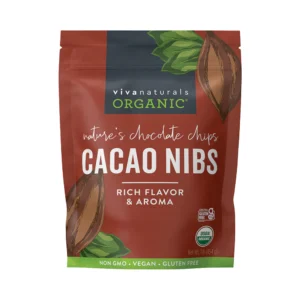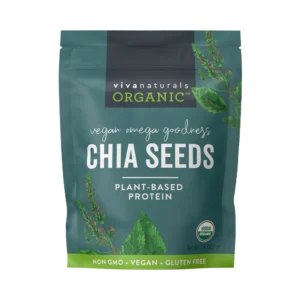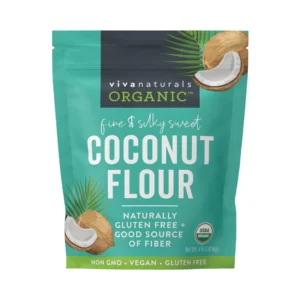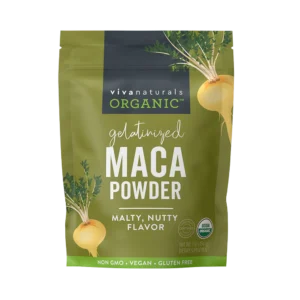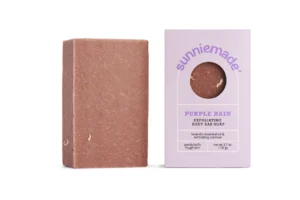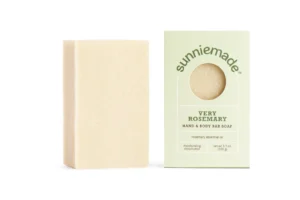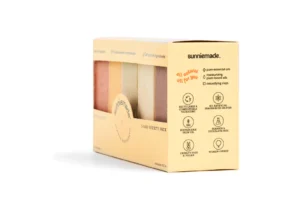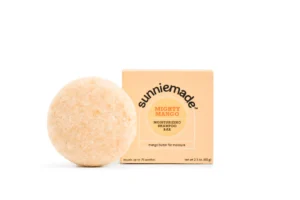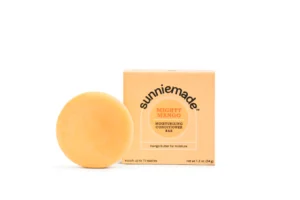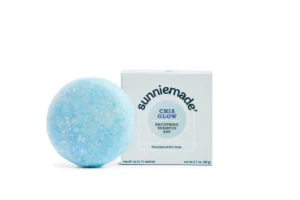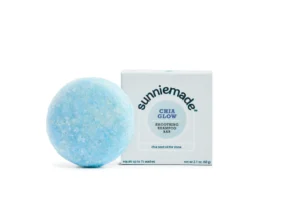Skin, the body’s largest organ, plays a vital role in safeguarding our overall health and well-being. Its significance extends beyond mere aesthetics, as it serves as a formidable barrier against pathogens, regulates body temperature, and facilitates sensory perception. The importance of maintaining optimal skin health cannot be overstated, as it directly impacts our immune system, psychological state, and overall quality of life.
The Skin's Functions
Protection
- Defense against Harmful Organisms: The skin acts as a robust barrier, shielding the body from harmful organisms such as bacteria, viruses, fungi, and parasites. Its outermost layer, the epidermis, forms an impenetrable barrier, preventing the entry of pathogens and reducing the risk of infections.
- Immune System Support: In addition to its physical barrier function, the skin houses a complex network of immune cells, including Langerhans cells and dendritic cells, which actively patrol its layers. These cells are crucial in identifying and neutralizing invading pathogens, bolstering the body’s immune response and defense mechanisms.
Structural Support
Covering and Protection of Internal Organs: The skin provides essential covering and protection to internal organs, serving as a resilient shield against external trauma, abrasions, and injuries. Its elasticity and durability help safeguard vital organs, minimizing the risk of damage from mechanical forces.
Shock Absorption: Beyond its protective role, the skin acts as a cushioning layer, absorbing and dispersing mechanical impacts and forces exerted on the body. This shock-absorbing function is vital in minimizing the risk of injury to delicate structures such as bones and internal organs during daily activities or traumatic events.
Temperature Regulation
Sweating Mechanism: The skin plays a pivotal role in maintaining the body’s core temperature through the process of thermoregulation. Sweat glands in the skin produce perspiration in response to elevated temperatures, which evaporates from the skin’s surface, dissipating excess heat and cooling the body.
Importance of Maintaining Body Temperature: Proper regulation of body temperature is essential for sustaining metabolic processes, enzymatic activity, and overall physiological function. The skin’s ability to regulate temperature ensures that the body remains within a narrow, optimal range, preventing complications associated with overheating or hypothermia.
Vitamin Synthesis
Role of Sunlight in Vitamin D Production: The skin serves as a primary site for the synthesis of vitamin D, a crucial nutrient essential for various physiological functions. Exposure to ultraviolet B (UVB) radiation from sunlight triggers the conversion of precursor molecules in the skin into active vitamin D, contributing to overall health and well-being.
Health Benefits of Vitamin D: Adequate vitamin D levels are vital for maintaining bone health, supporting immune function, and regulating calcium metabolism. By synthesizing vitamin D in response to sunlight exposure, the skin plays a pivotal role in ensuring optimal levels of this essential nutrient, thereby promoting overall health and vitality.
Understanding the multifaceted functions of the skin underscores its critical role in preserving health and well-being, emphasizing the importance of adopting holistic skincare practices and environmental considerations to support its diverse functions.
Superfoods to Support Your Body:
Caring for Your Skin
Internal Care
Importance of Nutrition: Proper nutrition is fundamental for maintaining healthy skin. Nutrients like vitamins, minerals, and antioxidants support skin repair, collagen production, and overall skin health.
Foods Beneficial for Skin Health: Incorporating foods rich in essential fatty acids, antioxidants, and vitamins can promote skin health. Examples include fatty fish (rich in omega-3 fatty acids), fruits and vegetables (high in antioxidants and vitamins), and nuts and seeds (containing essential nutrients like zinc and vitamin E).
Basic Skincare Routine
Cleansing: Regular cleansing helps remove dirt, oil, and impurities from the skin, preventing clogged pores and breakouts. Choose a gentle cleanser suitable for your skin type and cleanse twice daily, especially before bedtime to remove makeup and pollutants accumulated throughout the day.
Moisturizing: Moisturizers help hydrate the skin, maintain its moisture barrier, and prevent dryness and irritation. Select a moisturizer suitable for your skin type (e.g., oil-free for oily skin, hydrating for dry skin) and apply it after cleansing, focusing on areas prone to dryness.
Sun Protection: Protecting your skin from harmful UV rays is essential for preventing premature aging, sunburn, and skin cancer. Use a broad-spectrum sunscreen with an SPF of at least 30, apply it generously to all exposed skin, and reapply every two hours or after swimming or sweating.
Additional Self-Care Activities
Exercise: Regular physical activity improves circulation, promotes oxygen and nutrient delivery to the skin, and helps flush out toxins through sweat, contributing to a healthy complexion.
Adequate Sleep: Quality sleep is crucial for skin repair and regeneration. Aim for 7-9 hours of uninterrupted sleep per night to support optimal skin health and reduce the appearance of dark circles and puffiness.
Spending Time Outdoors: Moderate sun exposure is beneficial for vitamin D synthesis and mood enhancement. However, practice sun safety measures, such as wearing protective clothing and seeking shade during peak sun hours, to minimize UV damage.
Tips for Skincare Products
Simplifying Skincare Routines: Focus on essential skincare steps tailored to your skin’s needs, avoiding unnecessary or excessive product usage that may strip the skin’s natural oils or cause irritation.
Importance of Expiration Dates: Check the expiration dates on skincare products and discard any expired or outdated items. Using expired products can lead to decreased efficacy and potential skin reactions.
Choosing Suitable Products for Skin Type: Select skincare products formulated for your specific skin type (e.g., dry, oily, combination) and concerns (e.g., acne, aging). Look for non-comedogenic, fragrance-free options to minimize the risk of irritation and adverse reactions.
By integrating internal care practices, adhering to a basic skincare routine, engaging in self-care activities, and selecting suitable skincare products, you can support the health and vitality of your skin, promoting a radiant complexion and overall well-being.
Essential Oil Shower Steamers:
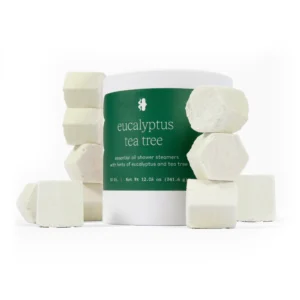
Eucalyptus shower steamer
- Free from plastic, palm oil and animal testing.
- Full of clean ethical ingredients!
- Good for daily shampooing or chemically treated hair.
Lifestyle Factors Affecting Skin Health
Showering Habits
- Impact of Water Temperature on Skin: The temperature of water used during showers can significantly affect skin health. Hot water can strip the skin of its natural oils, leading to dryness, irritation, and exacerbation of certain skin conditions like eczema. Opting for lukewarm water helps maintain the skin’s moisture barrier and prevents excessive drying, promoting healthier skin.
Sun Protection
Proper Use of Sunscreen: Sunscreen is a vital component of sun protection. Apply a broad-spectrum sunscreen with an SPF of at least 30 generously to all exposed skin, including the face, neck, and hands, at least 15 minutes before sun exposure. Reapply every two hours or more frequently if swimming or sweating.
Additional Protective Measures (Hats, Clothing): In addition to sunscreen, wearing protective clothing such as wide-brimmed hats, long-sleeved shirts, and sunglasses provides added defense against harmful UV rays. Seek shade during peak sun hours, typically between 10 a.m. and 4 p.m., when UV radiation is strongest.
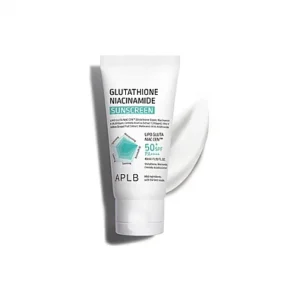
Glutathione Niacinamide Sunscreen
Enriched with Glutathione Niacinamide and Centella Asiatica to increase skin elasticity while soothing irritated skin. Keeps your skin moisturized with a prolonged moisturizing effect. Adheres to the skin seamlessly without caking and leaving a white cast.
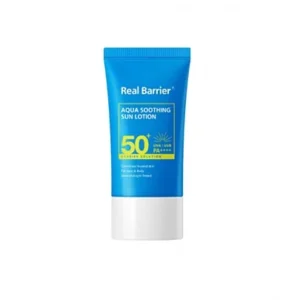
Aqua Soothing Sun Lotion SPF50+PA++++
Cooling and soothing ice sun lotion that cools the skin temperature heated by UV rays and gives a silky finish even after reapplying multiple times.
Understanding Skin Type
Differentiating Between Oily, Dry, Sensitive, and Combination Skin: Understanding your skin type is crucial for selecting appropriate skincare products and routines. Oily skin is characterized by excess sebum production, while dry skin lacks moisture and may feel tight or flaky. Sensitive skin is prone to irritation and inflammation, while combination skin exhibits characteristics of both oily and dry skin types in different areas of the face.
Tailoring Skincare Products Accordingly: Choose skincare products formulated specifically for your skin type and concerns. For example, opt for oil-free or non-comedogenic products if you have oily or acne-prone skin, and select gentle, fragrance-free formulations for sensitive skin. Experiment with different products and routines to find what works best for your skin.
Other Lifestyle Choices
Smoking Cessation: Smoking has detrimental effects on skin health, including premature aging, wrinkles, and dullness. Quitting smoking can significantly improve skin appearance and reduce the risk of developing skin conditions and diseases associated with tobacco use.
Stress Management Techniques: Chronic stress can negatively impact skin health by triggering inflammation, exacerbating skin conditions, and impairing the skin’s ability to repair and regenerate. Adopt stress management techniques such as mindfulness, meditation, exercise, and adequate sleep to promote overall well-being and healthier skin.
By paying attention to lifestyle factors such as showering habits, sun protection, understanding skin type, and making positive lifestyle choices, you can effectively support skin health and maintain a radiant, youthful complexion.
Conclusion
Importance of Skin Health
In conclusion, the significance of skin health cannot be overstated. As the body’s largest organ, the skin serves as a vital barrier against harmful pathogens, regulates temperature, and facilitates sensory perception. Its role in protecting internal organs, synthesizing vitamin D, and reflecting overall well-being underscores its indispensable nature in maintaining optimal health.
Adopting Healthy Skincare Practices
I encourage everyone to prioritize healthy skincare practices as an essential aspect of self-care. By establishing a regular skincare routine, incorporating nourishing foods into your diet, and protecting your skin from environmental stressors such as UV radiation and pollutants, you can effectively support skin health and enhance its resilience and vitality.
Role of Lifestyle Choices in Maintaining Vibrant Skin
Moreover, it’s crucial to recognize the profound impact of lifestyle choices on skin health. From showering habits to sun protection, understanding skin type, and making positive lifestyle changes such as quitting smoking and managing stress, each decision contributes to the overall health and appearance of your skin. By embracing healthy lifestyle practices, you not only promote vibrant skin but also cultivate a sense of well-being that radiates from within.
In essence, caring for your skin is not merely about achieving superficial beauty but about nurturing a vital organ that serves as a reflection of your overall health and vitality. Let us commit to embracing healthy skincare practices and making conscious lifestyle choices to ensure our skin remains radiant, resilient, and glowing with health for years to come.
Disclosure: Please note that the links within this product review may generate a small commission. This compensation aids in supporting our research and editorial team. We wish to highlight that our recommendations solely pertain to high-quality products.
Disclaimer: This article serves purely informational purposes and is not intended for the diagnosis, treatment, or cure of any medical condition. Prior to making any changes to your diet or lifestyle or taking supplements, it is imperative to consult a qualified healthcare professional.

